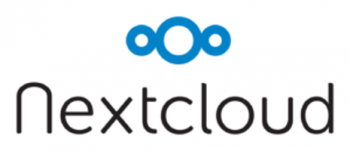Also included: Four new distros, the quote of the week, Steam Machine lacks steam, Ubuntu’s tool for making Snaps, and ArchAssault changes its name.
FOSS Week in Review
The week ahead looks exciting. Again this year, I’ll be going to the SouthEast LinuxFest and will be turning in reports from the conference. Also, FOSS Force will have a booth at this year’s event, a first for us at any conference. So if you’re going to be there, remember to keep an eye out for us.
 Meanwhile, it’s been an interesting week in the world of FOSS…
Meanwhile, it’s been an interesting week in the world of FOSS…
The news was dominated by three big stories: ownCloud, Nextcloud and ownCloud. If you somehow missed it, I’ll explain.
You may remember that back in April, ownCloud co-founder Frank Karlitschek abruptly resigned from the project with an explanation that was a little on the vague side: “Without sharing too much, there are some moral questions popping up for me. Who owns the community? Who owns ownCloud itself? And what matters more, short term money or long term responsibility and growth? Is ownCloud just another company or do we also have to answer to the hundreds of volunteers who contribute and make it what it is today?”
Flash forward to Tuesday, when OwnCloud announced on its website the formation of the ownCloud Foundation: “’We are extremely proud of how the free, community version of ownCloud, as well as the commercially supported product, have gained such wide adoption globally,’ said Markus Rex, ownCloud, Inc., CEO and cofounder. ‘By placing the project in the hands of the Foundation we are relying on the collective wisdom of the ownCloud community to provide the same, positive guiding hand to the governance of the project as they have to the creation, nurturing and development of the ownCloud project. This important step ensures the continued growth and success of the ownCloud ecosystem.’”
My hunch is that this was BS. I suspect that the main purpose of the Foundation is to eventually put up a firewall that would remove community developers from the decision making process and insure that future development was guided by corporate enterprise users. We’ve seen this before with the Linux Foundation, which barely bothers to pay lip service to desktop GNU/Linux.
The saga continued on Thursday, when Karlitschek announced that he and “most of the core technical people” at ownCloud were forking the project. “[T]oday we are forking ownCloud into a new open source project called Nextcloud and we are also founding a new company called Nextcloud GmbH to offer Nextcloud software and services for companies and bigger organizations.”
The mainstream tech media was all over this story, but tended to treat Nextcloud as the underdog, with many tech writers assuming that the clause “most of the core technical people” was mere hyperbole and reported that the new project had been joined by “a couple of key developers” or words to that effect.
Later, it would become evident that Karlitschek wasn’t exaggerating and that the defections to the new project had evidently dealt a severe blow to ownCloud. In a blog post on Thursday, Jos Poorvliet, ownCloud’s former community manager who’s now with Nextcloud, wrote: “As of now, most of the top contributors to ownCloud core are joining and of course, we’re very busy hiring and aim to leave no (wo)man behind.”
The announcement by Karlitschek and his new team was also well coordinated. Just as the news was beginning to circulate through the blogosphere about the fork, popular Linux advocate and journalist Bryan Lunduke went live on Google Hangouts with a well prepared 47 minute interview with Karlitschek and Poorvliet about the new endeavor.
From the interview we learned that Nextcloud already has funding and appears to be on firm financial grounds. Eventually, the organization will consist of a for-profit company and a non-profit foundation, with all trademarks and intellectual property being held by the foundation. If possible, the new organization would like to do away with all proprietary components that have been associated with ownCloud, with a goal of developing an organization based on the Red Hat business model of monetization through support. The pair also said that anyone with an ownCloud contract will get free support from Nextcloud for the term of their current contract.
They said the new company also intends to do away with the controversial contributor license agreement, or CLA, that ownCloud developers have to sign before contributing code and will adopt a more traditional FOSS contributor model. It’s highly likely that developer dissatisfaction with the CLA was a major motivating force behind the developer defections, if not the entire split.
Any notions that the newly formed Nextcloud is the underdog in this split were almost immediately dispelled. Within hours of Karlitschek’s announcement and his subsequent interview by Lunduke, ownCloud announced that it was shutting the doors at its U.S. office.
“Our main lenders in the US have cancelled our credit,” the announcement read. “Following American law, we are forced to close the doors of ownCloud, Inc. with immediate effect and terminate the contracts of eight employees. The ownCloud GmbH is not directly affected by this and the growth of the ownCloud Foundation will remain a key priority.”
ownCloud blamed the situation on Karlitschek’s announcement “that he intends to launch a competitive product to ownCloud into the market using recently poached developers….”
This story isn’t over yet, and as a great baseball coach once said, it ain’t over until it’s over. Stay tuned…
Quote of the Week: This week’s quote is lifted from the headline of a Sam Varghese story that ran on ITWire on Monday. “Systemd change has Linux users up in arms.” It occurs to me that you can drop the word “change” and the headline is just as true.
Another day, another distro: Arch Linux has released a new image, version 2016.06.01…. Linux Lite, a Ubuntu based distro designed for Windows users, released version 3.0 on Wednesday…. Debian based and developed in China, deepin 15.2 has been released…. ExTiX 16.3, based on Debian and Ubuntu, with a custom kernel and using the LXQt desktop, was released Monday…. Designed for penetration testing and security assessments, BackBox Linux has released version 4.6, which is primarily a maintenance release.
Quick takes: Just about every tech site on the planet was reporting this week that after seven months, Valve’s Steam Machines aren’t getting much traction, with Ars Technica’s article being the most cited…. Ubuntu has announced the release of Snapcraft 2.9, a tool for creating Snaps…. The “ethical hacking” distro ArchAssault has changed its name to ArchStrike.
That’s it for another week. See you next week at SELF. Until then, may the FOSS be with you…
Christine Hall has been a journalist since 1971. In 2001, she began writing a weekly consumer computer column and started covering Linux and FOSS in 2002 after making the switch to GNU/Linux. Follow her on Twitter: @BrideOfLinux











On Steam Machines:
Last fall my kids wanted to buy a current generation gaming console. I did everything I could to convince them a Steam Machine is the best option:
– huge selection of games
– many of the available games are very cheap
– no monthly fee (you need Playstation Plus or Xbox Gold to access some important features on the respective consoles)
– the games will effectively be supported forever, so we could get a newer Steam Machine in 2026 and play everything we purchased in 2016. Microsoft and Sony might do that with their next consoles, but historically they have not.
But my kids are kids, after all, and they specifically wanted Madden NFL 2016, WWE Raw 2016, Plants vs. Zombies: Garden Warfare. They would have showed more enthusiasm for a bag of potato chips than they did for the Steam Machine.
So now there’s a Playstation 4 in the living room. I thought about buying my own Steam Machine, but I can’t justify the expense when it would barely be used.
Good for Frank Karlitschek and NextCloud. I wish them the best of luck.
Contributor license agreements are anti-FOSS and should be treated as the theft they are.
If you come across a project using CLA’s, don’t contribute. If you have the experience and time, fork it instead!
@Mike S.
Not surprising. Kids often like to play what they know other kids are playing.
Not saying you are, but waving the Steam banner isn’t necessarily a good thing for FOSS. Despite the boost they’ve given to gaming on Linux recently they’re DRM encumbered which is bad. Bringing proprietary games to Linux is also not a net gain. If everyone switched to Linux, but continued to run the same proprietary crap they always have, then nothing has improved. Eventually people who don’t understand the benefits of FOSS will demand their latest shiny crap work under Linux and there will be massive corporate pressure to integrate DRM into Linux. Think it can’t happen because Linux is FOSS? Consider Mozilla Firefox and the recent inclusion of DRM black boxes into it: “we are enabling DRM in order to provide our users with the features they require in a browser and allow them to continue accessing premium video content”.
That’s exactly what will happen. Linux will be undermined by little proprietary chunks of software that will be “optional” except that everything will require them along with a constant net connection to check if you are a dirty pirate every time you try to do something. Sure it will cause other things to break, and freedom will be lost, but look at how many people are now using Linux! No thanks, that’s insane.
I am a gamer and here’s what I do: I set up a gaming machine running Linux with a bunch of really good FOSS titles: Oolite, FreeOrion, and OpenMorrowind (using data files from an old copy of Morrowind), among a bunch of other excellent FOSS titles. Additionally I run DOSBox-X to run my old DOS and Windows games. MAME to run old arcade and computer/console games. Gargoyle to run old text adventures, and more.
Despite having several gaming consoles in the house (on a separate network from my computers), the Linux gaming machine sees more playtime. Sure, a new game will come along for a console once in a while and grab some attention for a few weeks, but everyone always comes back to the gaming machine. Newer games just don’t seem to have the staying power of a lot of classics.
@Mike,
I think you’re right, and it is a concern of mine. While Steam’s DRM is generally less odious to deal with than that of the Playstation or Xbox, it’s still DRM and as such fundamentally unethical.
On the other hand, I do think this is one of the areas where FOSS has not – at least not yet – come up with a working business model for the alternative. I am indifferent to NFL football, but Madden NFL has tremendous artwork and a huge set of complex features. Likewise I don’t care for first-person-shooter games, but I think Xonotic and Alien Arena, as good as they are, need several orders of magnitude more investment to match Garden Warfare or Overwatch and so forth. Glest and Warzone 2100 can’t match Starcraft 2. etc…
I’m not arguing that it’s worthwhile to sacrifice freedom for gaming experience. I don’t think it is. But selling the average person, like my own kids, on freedom is simpler when they don’t see it as an enormous sacrifice of enjoyment.